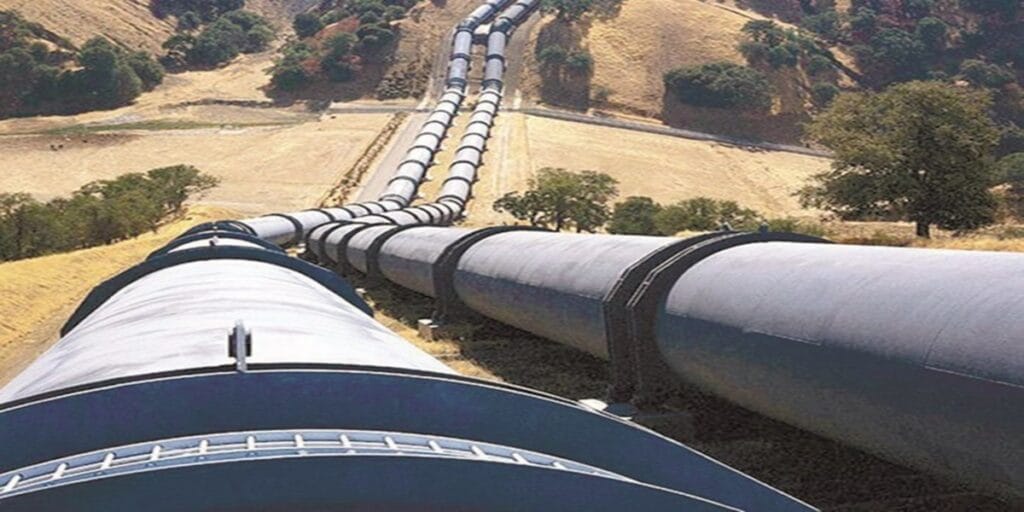As geopolitical tensions reshape the maps of global energy, Morocco is methodically advancing its strategy. Facing a national demand for natural gas expected to triple by 2040, the Kingdom is building, stone by stone, the foundations of an ambitious energy sovereignty, driven by a pragmatic strategy: diversification of sources, modern infrastructure, international cooperation, and above all, the valorization of its own resources.
Gas, a strategic lever for energy sovereignty
Far from being a passing trend or a conjunctural reaction, Morocco’s gas shift is part of a long-term vision. As early as 2021, Rabat signed agreements to reverse the flow of the Maghreb-Europe gas pipeline via Spain, ensuring access to international LNG. Since then, projects have accelerated. The Ministry of Energy Transition recently launched a call for expressions of interest to develop a vast national gas network. The goal: a liquefied natural gas (LNG) terminal at Nador West Med, connected to pipelines serving the industrial zones from Kenitra to Mohammedia, with a second entry point planned on the Atlantic coast towards Dakhla.
This development is not just a supply issue. It also aims to support the growing needs of key sectors: electricity production, seawater desalination, chemical industry (phosphate), and general industrial use (cooling, air conditioning).
From Gharb to Tendrara: awakening deposits
The strategy also relies on the exploitation of national resources. While the Tendrara site has attracted media attention, other regions reveal equally promising potential. The British company SDX Energy is active in the Gharb basin, where it boasts a drilling success rate of over 80%. Its Sebou concession, acquired in 2016, now generates more than 7 million cubic feet of gas per day. SDX also holds 75% of the local distribution infrastructure, notably towards the industrial zone of Kenitra.
Morocco is therefore no longer just exploring: it is already producing and structuring an ecosystem around this production.
The Nigeria-Morocco axis, or gas diplomacy
But the true trump card of the Kingdom is called NMGP – the Nigeria-Morocco Pipeline. Stretching over 5,000 km, this pan-African project, renamed the “Atlantic Pipeline” by African leaders, symbolizes the strategic depth of Moroccan energy diplomacy. It will connect Nigeria’s vast reserves to Europe, running along the West African coast to Morocco, crossing 13 countries.
The project is generating increasing interest from international investors. During the spring meetings of the IMF and the World Bank, the Nigerian Finance Minister revealed the interest of the United States in participating in this project. This statement reinforces the credibility of a project that Morocco is leading with determination, in a spirit of regional cooperation.
Gas and energy transition: an assumed compatibility
Choosing gas does not mean renouncing ecology. The Kingdom continues to invest heavily in renewable energies while consolidating a “national energy flexibility,” as explained by Minister Leila Benali on Bloomberg. Gas is seen as a bridge, a transition energy that allows for a reduction in carbon footprint without compromising energy security.
In this sense, Morocco applies the three golden rules recently emphasized by the International Energy Agency (IEA): diversification, predictability, and cooperation. It relies on stable policies to attract investors, diversifies its supplies, and remains open to all partnerships, whether from the United States, China, or Russia.
A royal vision, a continental ambition
Behind this strategy lies a vision: that of a Morocco betting on its African roots to position itself as a regional energy hub. The Kingdom has not sought to compete in a war of announcements but to methodically build its independence. The bet is bold, but it is beginning to bear fruit.
Tomorrow, by 2030, with renewable deposits, strategic pipelines, and modern infrastructure, Morocco could well become one of the pillars of the energy architecture of Africa and the Mediterranean. A “gas Eldorado”? Perhaps. But above all, a lucid strategy, at the crossroads of national interests and global changes.


